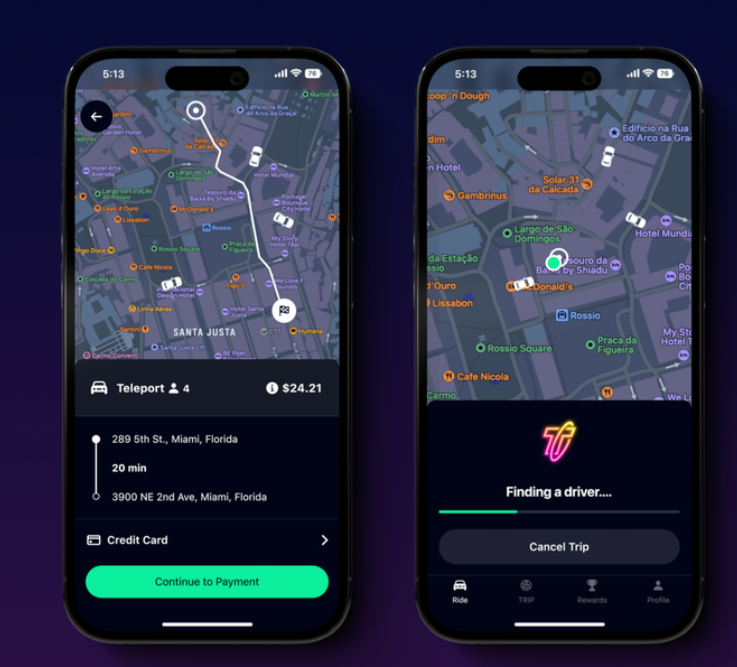In the ever-evolving rideshare industry, a new competitor is emerging, leveraging blockchain technology to transform the market: Teleport, operating on the Solana blockchain. This innovative platform promises significant benefits for both drivers and riders compared to traditional services like Uber.
 Teleport
Teleport
What is Teleport?
Teleport is a blockchain-based rideshare platform that operates on Solana. It aims to provide a more equitable and efficient alternative to traditional ridesharing services by leveraging decentralized technology. Teleport charges a significantly lower commission of 15%, compared to Uber's 44%, which means drivers earn more while riders pay less.
What is TRIP?
TRIP is the underlying protocol and rewards system that powers Teleport. It functions as an open protocol, minimizing fixed costs and allowing decentralized contributions and investments. Drivers on Teleport earn TRIP rewards, which serve as an additional incentive and income stream.
Business Model of TRIP and Teleport
Decentralized Operations: TRIP operates as an open protocol, avoiding high fixed costs by leveraging decentralized contributions and investments. This structure enables the platform to maintain low expenses while maximizing efficiency.
Onchain Rewards: Teleport uses onchain rewards to attract and motivate early adopters. Drivers earn TRIP rewards, adding an extra income stream and promoting loyalty and engagement.
Lower Fees: By charging only a 15% commission, Teleport ensures that drivers retain a larger portion of their earnings, making the platform more attractive compared to traditional rideshare services that take up to 44%.
Community-Driven Growth: Teleport relies on its community for growth and marketing efforts, using word of mouth, street teaming, digital ads, and partnerships to expand its user base.
Competitive Edge Over Traditional Rideshare Services
Higher Earnings for Drivers: With a lower commission fee, drivers earn significantly more on each ride compared to traditional platforms.
Lower Costs for Riders: Reduced commissions translate to lower fares for riders, making Teleport a more cost-effective option.
Blockchain Integration: The use of blockchain technology ensures transparency, security, and efficiency in operations and rewards distribution.
Decentralized and Community-Driven: Unlike traditional centralized services, Teleport's decentralized model promotes community involvement and reduces reliance on expensive corporate infrastructure.
Teleport/TRIP Rideshare Update June 2024
Launch in Austin, Texas
- Teleport has officially launched in Austin.
- Over 200 drivers have joined through word of mouth.
- The platform has seen 106 unique riders and completed over 440 rides since last Wednesday.
Key Insights and Challenges
- The current challenge is demand constraint. While driver uptake is strong, increasing rider participation is crucial.
- To enhance adoption, Teleport needs to boost awareness among potential riders and ensure drivers receive competitive pricing and support.
Strategies for Growth
Increase Rides: Utilize street teaming, digital ads, airport support, community partnerships, and driver in-car advertising to attract more riders.
Improve Rewards: Simplify and clarify rewards for drivers to motivate them to sign up more riders and grow the network.
Enhance Driver Experience and Pricing: Introduce dynamic pricing models, including surge pricing, tipping, and different ride categories, based on driver feedback.
The TRIP community is encouraged to take proactive steps to promote Teleport in Austin. Organizing and initiating actions independently will contribute significantly to the platform's success.